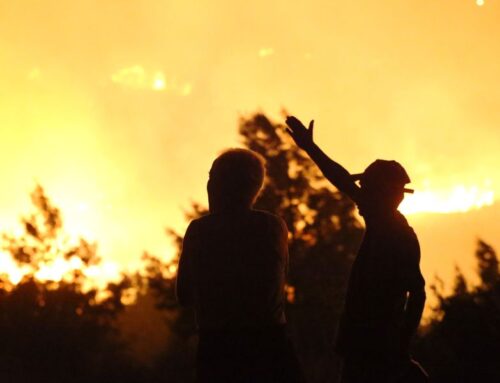Skunk captured at Hilo Harbor, euthanized for rabies testing
November 11, 2025
Agriculture inspectors captured a skunk at Hilo Harbor on Friday after setting traps for the animal.
Early Thursday morning, two reports from personnel at the same shipping container company came in about sightings of a skunk around Pier 1, but at different times.
During one spotting, dockworkers tried to barricade the smelly critter near cement pilings, but the skunk escaped before inspectors from the Hawaii Department of Agriculture and Biosecurity’s Plant Quarantine Branch in Hilo arrived.
The second report said the skunk had taken refuge under a vehicle on the dock, but said the animal couldn’t be reached. Inspectors asked the dockworkers to move the vehicle into a shipping container, and then they set up traps with cat food and closed the container. The next day, inspectors returned to the shipping container and found the skunk in a trap.
Inspectors surveyed the area, but did not see any other skunks. As a precaution, inspectors set additional traps throughout the container yard.
The Hawaii Department of Agriculture and Biosecurity is testing the skunk for rabies, which requires euthanizing the animal.
It isn’t clear where the skunk came from, but most likely it hitchhiked aboard a cargo ship.
Skunks have been captured in February 2018, January 2021, July 2021, June 2022, and October 2024 at Honolulu Harbor and in June 2025 at Kakaako Waterfront Park, which is next to the harbor.
On Maui, inspectors captured a skunk at Kahului Harbor in December 2020 and another at a trucking company in August 2018. Also on Maui, the Department of Land and Natural Resources captured a skunk at Kanahā Pond State Wildlife Sanctuary in August 2022.
In February 2023, a Hilo resident caught a skunk in a mongoose trap. All previously captured skunks have tested negative for rabies.
The state of Hawaii prohibits skunks, which are only allowed with a permit for research and exhibition in a municipal zoo. Skunks live in the continental U.S., Canada, South America, Mexico and other parts of the world. The Centers for Disease and Control consider skunks, bats, foxes, and raccoons to be the four primary wild carriers of rabies, a fatal viral disease of mammals that is often transmitted through the bite of an infected animal. Hawaii is the only state in the U.S. and one of the few places in the world that is free of rabies.
Search
RECENT PRESS RELEASES
Related Post



